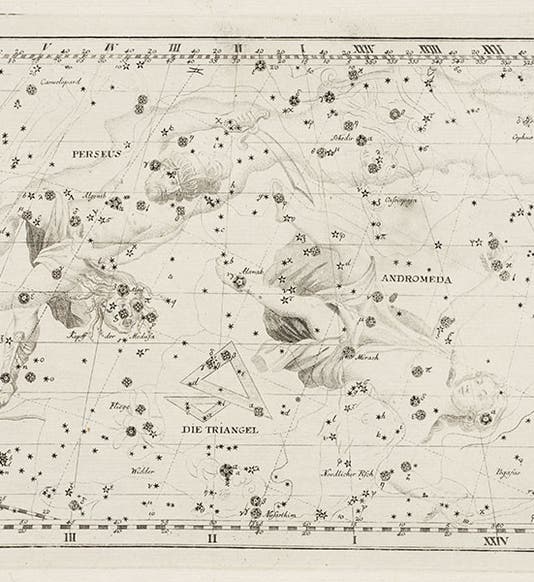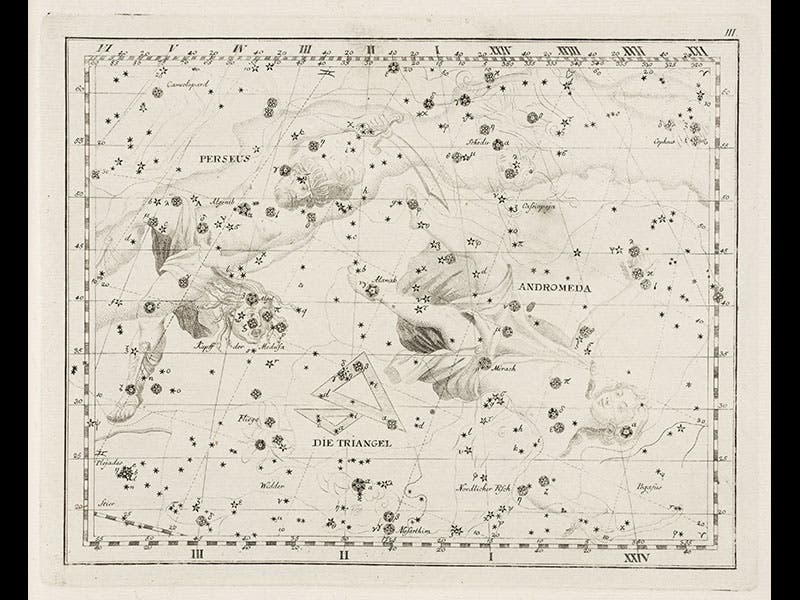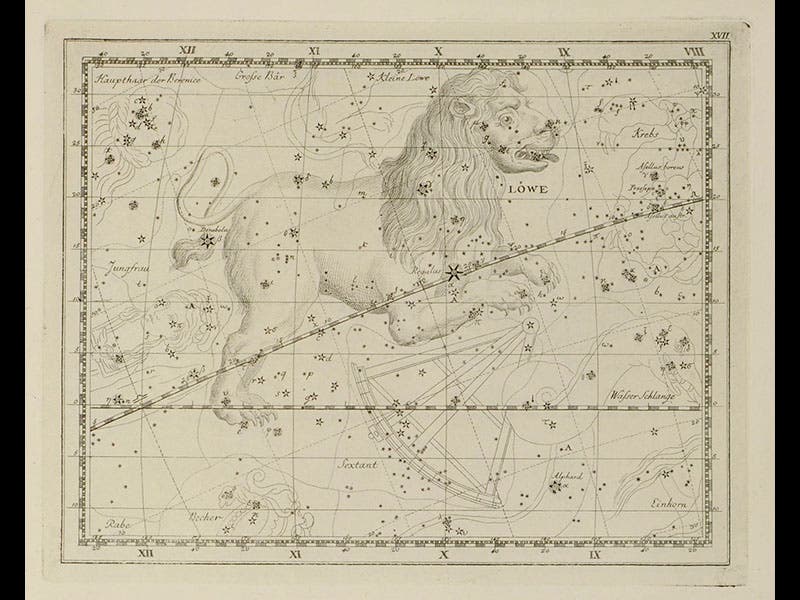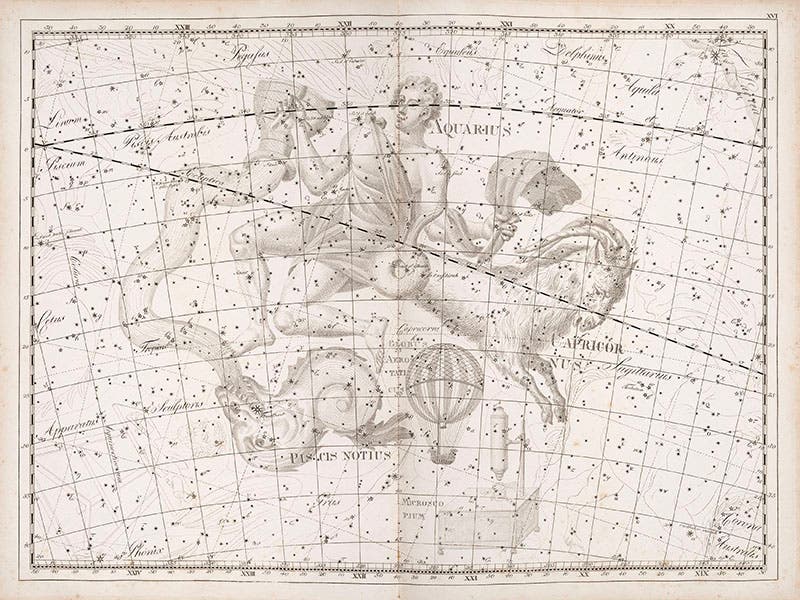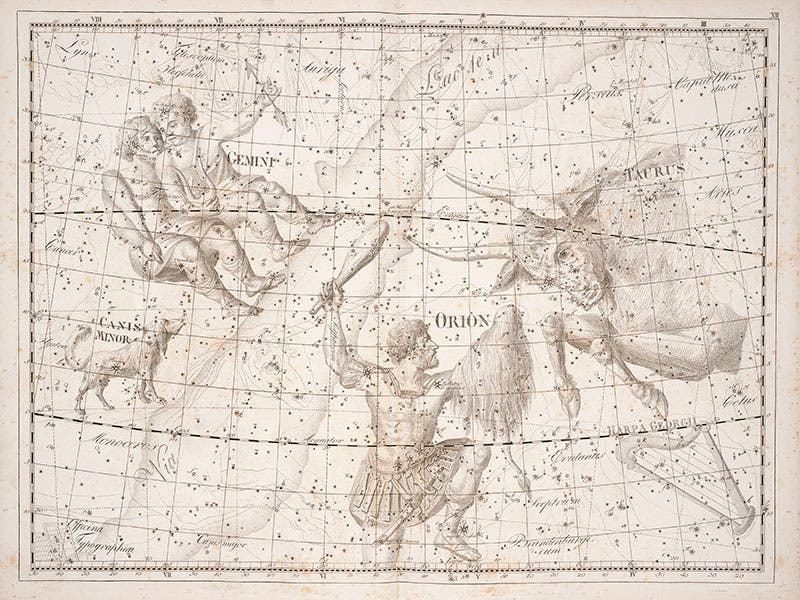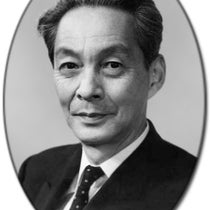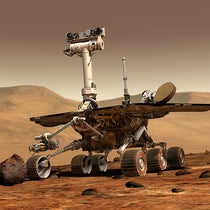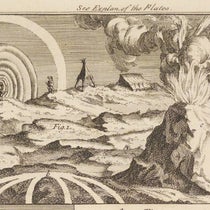Scientist of the Day - Johann Bode
Johann Bode, a German astronomer, was born Jan. 19, 1747. In the 19th century, Bode was best known for discovering a numerical series that predicted the distances of the planets from the sun. Bode's law, as it was called (or sometimes the Titius-Bode law, since Bode got the idea from a fellow countryman, Daniel Titius) generated the following series: 0.4, 0.7, 1.0, 1.6, 2.8, 5.2, 10.0, 19.6, 38.8, etc. The six known planets lie at almost exactly six of those positions, where the unit is the astronomical unit (a.u.), or the distance of the earth from the sun (so Earth is 1.0 a.u. from the sun, Mars is 1.6, Jupiter 5.2, etc.). Nobody thought too much of this series when Bode first proposed it in 1772, since when you only have six numbers, it is not too hard to predict them with some series or other. But when Uranus was discovered in 1781, at 19.6 a.u. from the sun, and then Ceres, the first asteroid, was spotted in 1801, in the missing gap of 2.8 a.u., then astronomers began to take notice. Perhaps Bode had uncovered some fundamental regularity in the formation of solar systems. Bode's law was thus given great prominence in the first half of the 19th century. But when Neptune was discovered, it did not fit the pattern (it was not 38.8, but rather 30.0 a.u.), and neither did Pluto. So now we think of Bode's law as just an interesting coincidence, and Bode is better remembered for his splendid star atlases, two of which were displayed in Out of This World, the Library’s first ever online exhibition.
The first two illustrations above are from Bode’s edition of Flamsteed’s Atlas (1782), and the second pair are from his monumental Uranographia (1801).
Dr. William B. Ashworth, Jr., Consultant for the History of Science, Linda Hall Library and Associate Professor, Department of History, University of Missouri-Kansas City

